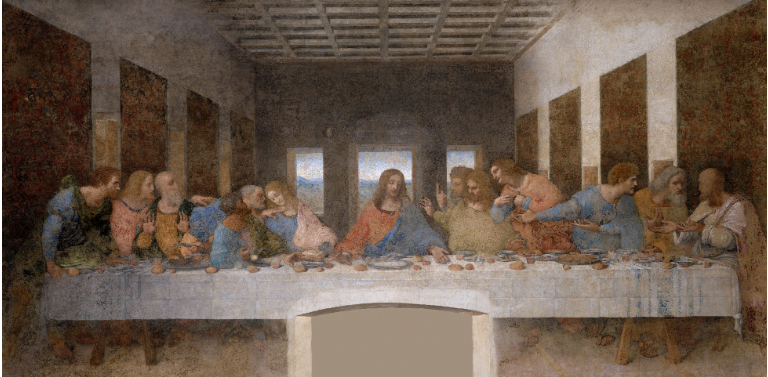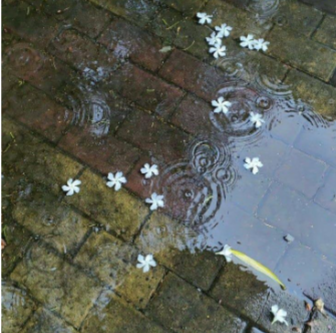Why Didn’t You Knock: An Insight Into Palestinian Literature
- Alexandra Rae
- Oct 6, 2024
- 5 min read
By Alin Sengjaroen
Note. This article discusses Men in The Sun by Ghassan Kanafani during the introduction. So if you want to read the story first, please skip to THE RESISTANCE section.
Collage by Alin Sengjaroen
In the end, the Palestinian men illegally immigrating via a truck to reach Kuwait did not make it. The driver, Abul Khaizuran, said to himself:
“Why didn’t you knock on the sides of the tank? Why didn’t you bang the sides of the tank? Why? Why? Why?”
– Men in The Sun by Ghassan Kanafani
Abul expressed his regrets of having gotten carried away with small talk that by the time the conversation ended, the immigrants had already died due to overheating in the tank. The Palestinians did know the risks involved, in hiding in the tank just to move to southern Iraq and get a good job. Yet, they didn’t hesitate to withstand the heat so that they could support themselves. It shows the sheer bravery and self-determination that comes with those under oppression.
Those two are the common themes within Palestinian literature. Having been constantly occupied by Israel, most of the novels and poems written are centered on fighting for the freedom of their land. This article also aims to uplift Palestinian authors’ voices and their bravery. At the end of the article, there will be a master document providing donation links for Palestine, Congo, Sudan, etc., and another document for resources regarding Palestine's history and literature. So please, if you have the means, a couple of dollars is already a lot for these families in need.
THE RESISTANCE
During the early twentieth century, Palestine experienced several changes, and the writers of that time felt that a new literary mode should be curated. Thus emerged Poetry of Resistance: a medium Palestinian poets use to express their voices. Since they’ve been exposed to violent practices by the Israeli occupation, they turn to use their words and rebuild their homeland entirely of their strong, free spirit. There is also a subgenre or a more general term called resistance literature which refers to all types of writing, not limited to only poems, spreading stories about their land.
However, ever since the October 7th attack, it has been hard for Palestinian poets to write. Creating literary works requires a great amount of focus and Palestinians (to this day) fear for their lives even in their shelters. They will not be able to predict when the Israeli military will strike; hence, Palestinians live in constant amounts of stress, not being able to write freely as they used to. Not to mention, there are greater concerns such as traveling for food supply, hiding in case of another attack, fending for clean water sources, and many more, that Palestinians have no time to sit down and write.
Furthermore, Israel has destroyed uncountable amounts of libraries, schools, museums, hospitals, and religious buildings–even before the October 7th attack. Hundreds and thousands of books were gone. Not only is the land destroyed, but the culture, people, and history too are being wiped out.
THE NOTABLE AUTHORS AND POETS
Palestine has faced several drawbacks and changes throughout history. Even then, the poets and authors of Palestine remain strong as they continue to produce works that represent their determined voice for the land.
Ghassan Kanafi is the author of Men in The Sun, The Land of Sad Oranges, and many more. His novels are beautifully written as he weaves the Palestinian experiences into a collection of words. He was a writer whose weapon was not a firearm weapon but a ball-point pen (Lebanon’s Daily Star). Moreover, besides being a novelist, he was also a political activist, an editor, and a journalist. Unfortunately, he passed away due to an assassination attempt by Mossad agents on July 9th, and as of 2024, it has been 50 years since then.
Mahmoud Darwish was regarded as Palestine’s national poet. His works include I Come From There, Passport, A Lover From Palestine, and many more. In total, he has published 8 proses and over 30 poetry books. One of my personal favorites is Who Am I, Without Exile? which talks of a new realization of the world. “We have become two friends of the strange/creatures in the clouds … and we are now loosened/from the gravity of identity’s land,” he writes. Most of his poems have three themes: identity, dreams, and fear of abandonment. Besides that in 1988, he also wrote the Palestinian Declaration of Independence. Mahmoud Darwish was a great poet and author whose works have greatly impacted the human race. He passed away on 9th August 2008 which as of 2024, it has been 16 years since then.
Fadwa Tuqan is a contemporary poet whose works represent those suffering under Israeli occupation. She is often referred to as the Poet of Palestine. One of her most notable works is titled This Land, My Sister, is a Woman which she weaves the themes of Arab women’s struggles in a male-dominated society. She compares the Palestinian land to the strength of a woman. “My sister, our land has a throbbing heart,/it doesn’t cease to beat, and it endures/the unbearable. It keeps the secrets/of hills and wombs.” She has published a memoir, A Mountainous Journey, and several poetry collections. Besides This Land, My Sister, is a Woman, she has also written Hamza, A Life, And Nothing Remains, etc. She passed away on 12th December 2003 which as of 2024, it has been 11 years since then.
WHAT CAN WE DO?
Upon reading this you may be asking, how can I help the people of Palestine? Besides donating, you may also educate yourself on the history of Palestine and continue consuming Palestine literature. If you have the means, you may also boycott brands that support Israel. Here is a website to check if the brands or media you consume support genocide. Simply type in the names.
Most importantly, keep talking about Palestine. Do not let this be a fleeting trend. I am writing this as a poet, writer, and screenwriter; our job is to uplift voices and support those in need. We cannot let the people of Palestine be silenced.
From the river to the sea,
Palestine will be free.
CITATIONS.
Mir, None Salam. “Palestinian Literature: Occupation and Exile.” Arab Studies Quarterly, vol. 35, no. 2, Apr. 2013, https://doi.org/10.13169/arabstudquar.35.2.0110.
Mambrol, Nasrullah. “Analysis of Ghassan Kanafani’s Men in the Sun.” Literary Theory and Criticism, 1 Aug. 2023, literariness.org/2023/08/01/analysis-of-ghassan-kanafanis-men-in-the-sun.
Syed, Armani. “How Poetry Became a Tool of Resistance for Palestinians.” TIME, 11 Jan. 2024, time.com/6554381/poet-palestine-gaza-war.
Israeli Damage to Archives, Libraries, and Museums in Gaza, October 2023–January 2024 – Librarians and Archivists With Palestine. librarianswithpalestine.org/gaza-report-2024.
Syed, Armani. “How Poetry Became a Tool of Resistance for Palestinians.” TIME, 11 Jan. 2024, time.com/6554381/poet-palestine-gaza-war.
“‘This Land, My Sister, Is a Woman’: Fadwa Tuqan’s Legacy as A.” Institute for Palestine Studies, www.palestine-studies.org/en/node/1653278.
“Who Am I, Without Exile?” The Poetry Foundation, 22 June 2024, www.poetryfoundation.org/poems/52549/who-am-i-without-exile.
“Mahmoud Darwish.” The Poetry Foundation, 11 June 2024, www.poetryfoundation.org/poets/mahmoud-darwish.




Comments